
Name: Nicole and Andrew Allen
Location: Massachusetts, United States
Child’s Birth Year: 2018
Keywords: HIE Dad, New to HIE, PTSD & Mental Health, Supporting Your Partner
Sometimes the world seems against you
The journey may leave a scar
But scars can heal and reveal just
Where you are
-From Disney’s Moana
When Nicole and Andrew found out they were expecting their first child, Amelia, they were filled with excited anticipation over what this new stage in their lives would hold for them. They always knew they would raise their daughter to be brave and to not let fear hold her back from venturing outside of her comfort zone. After all, Amelia’s name came from the song “Amelia Jean” by Jack’s Mannequin: “Amelia Jean, you’re such a brave little soldier.” But before Amelia’s birth three years ago, they hadn’t realized just how much she would embody the song she was named after. They hadn’t realized that, from day one, she would be a brave little soldier fighting for her life in the war zone of the NICU.
Nicole went into labor just a few days before her due date. Her entire pregnancy had been normal, and, at the hospital, the delivery progressed as expected up until the very end. As Nicole was pushing, her heart rate suddenly plummeted. Immediately, Nicole was rushed into the operating room for an emergency C-section. Amelia came out not breathing, and she went without oxygen for eight minutes before being resuscitated and then intubated. She was taken straight to the NICU, where she spent a total of ninety-three days.
Although Amelia was supposed to be cooled for the typical seventy-two hours, she ran into complications throughout the cooling process. From going without oxygen, her organs began to shut down and her blood did not clot. The cuts she had, and the places where IVs were connected to her, would not stop bleeding. Doctors had to terminate the cooling protocol earlier than planned in order to treat these more pressing issues. Upon trying to figure out why Amelia’s blood wouldn’t clot, doctors discovered that her bowels were perforated. So, at a week old, Amelia had an ostomy surgery, where surgeons created a little stoma, a hole in her belly where waste can drain.
At seven weeks old, once her bowels began working, she had a second surgery where the stoma was closed back up. In those initial days, Amelia also received an MRI, which showed damage to her left frontal lobe. Nicole and Andrew were told by the doctors that the MRI could not definitively determine prognosis, but it was possible that Amelia would never be able to walk or talk.
Throughout the NICU stay, Nicole and Andrew felt like they were constantly adjusting their expectations every day. They went from being first-time parents, excited to hold their brand new baby and bring her home right away, to a couple hours later being told that their baby might not make it. As they began to grapple with the unimaginably difficult news they had just learned, the outlook suddenly shifted again to Amelia surviving, but potentially having substantial impairments. They were thrown into this world, where the one certainty was uncertainty, where it became surprising if there were no surprises on a particular day. But, through it all, they continued to move forward, fueled by the notion that they would do everything in their power to advocate on Amelia’s behalf. For instance, even when the doctors suggested G-tube surgery early on, Nicole and Andrew were not afraid to express that Amelia needed more time to work on feeding before being written off. Eventually, after three months of procedures, surgeries, and constant inconstancy, Amelia was discharged without any feeding tubes.
On top of feeling powerless at times during their stay, Nicole and Andrew struggled with waves of guilt. In the aftermath of Amelia’s birth, Andrew relived that traumatic day, both while awake and in his dreams, going over what he could have potentially done differently. In hindsight, he knows that both he and Nicole did all they could and that there was no way they could have predicted the HIE. But, in those initial days, Andrew felt like he failed in his duties as a father and a husband, because he couldn’t protect his family from all the hurt. Throughout the journey, he realized that dwelling on the past was only preventing him from finding gratitude in the day-to-day moments he did have with Amelia. Neither Nicole nor Andrew could erase what happened, but what they could do was make sure that Amelia knew how unbelievably loved she was. What they could do was find the lightness in each day, despite the dire circumstances, whether that meant dressing Amelia up in a turtle costume as she went in for her second surgery on Halloween day, taking a moment to appreciate Amelia’s beautiful smile, or singing along to the Moana soundtrack as they tried to get Amelia to drink even a milliliter more milk than the day before.
As much as the NICU experience was stressful, the lifelong connections Nicole and Andrew forged during their time there were incredibly healing. Nicole befriended many fellow NICU mothers who were able to understand the grief associated with losing the perfect, magical birth so often portrayed in the media. While having those friends close by was comforting, Nicole and Andrew felt “othered” because Amelia was, by far, the biggest baby in the hallway. Their experiences were unique from that of the other NICU parents they befriended because of all the prognostic uncertainty associated with HIE. Moreover, virtually all of the informational resources in the hospital were directed toward parents of premature babies.
Thus, Nicole and Andrew were relieved to find Hope for HIE early on in the NICU stay. Through Hope for HIE, they finally had a network of fellow parents who truly understood the complexities of the HIE experience and who could provide insight on how all this might translate to day-to-day life. They finally had people who understood how difficult it was to reach a place of acceptance when there was no certainty about what they were accepting—what Amelia’s life would look like was still largely unwritten. While family members and friends who visited were well-intentioned, hearing the blanket statement of “Don’t worry, Amelia is going to be fine” was frustrating, for that wasn’t something anyone could claim to know. When Nicole and Andrew expressed concern about Amelia’s microcephaly, loved ones would often say, “But her head looks fine. It’s in proportion with the rest of her body.” They understood that the people who cared about them just wanted to help make them feel better, but what they really needed was just to be listened to and validated. So, for Nicole and Andrew, having those HIE parents who held space for them to just feel their feelings, instead of attempting to “fix” a situation for which there was no simple solution, was invaluable.
In addition, Amelia’s primary NICU nurses were also phenomenal, finding ways to bring warmth to the often sterile hospital environment. The nurses were both attuned to Amelia’s needs and to the well-being of Nicole and Andrew. When the nurses saw that Nicole and Andrew were visibly drained from all the hours in the hospital, they told them to go on date nights, offering to send pictures and updates of Amelia in the meantime. To be given explicit permission to take a much-needed break was empowering. Even after Amelia’s discharge, the NICU nurses continue to be part of her life and come to her birthday parties. Nicole and Andrew are forever grateful for the sheer effort and care so many providers have invested into Amelia’s journey. Though Amelia is their brave little soldier, she does not fight in isolation. Instead, since birth, she has been surrounded by an incredible troop of doctors, nurses, therapists, and family members who fight alongside her.
Perhaps the greatest resource Nicole and Andrew have is one another. They like to joke that there is no better way to test a couple’s compatibility than by putting them together in the close quarters of a room in the Ronald McDonald House for three months. While the trauma could have easily broken them, Nicole and Andrew worked together as a team in a way that strengthened their relationship. For instance, when Nicole pumped in the middle of the night, Andrew was always there to take her milk down to the freezer for storage. They also took time every day to goof around with one another, so that life didn’t seem unbearably heavy all the time. On their walks back and forth from the Ronald McDonald House to the hospital, they constantly laughed and cracked jokes. To other couples who have a child with HIE, Nicole and Andrew would stress the importance of finding ways—big or small—to make life a little easier for one another. Even if it is something as simple as asking your partner if they need anything on the way home from work, expressing gratitude for something your partner did, or sharing a funny joke…tiny acts of kindness can go a long way. For it is so much better to feel alone together than to feel alone in solitude.
From the time of discharge, Amelia’s schedule was busy with early intervention therapy appointments four days a week. To manage all of Amelia’s needs and appointments, Nicole and Andrew were fortunate that they had access to at-home nursing support and that Andrew’s new job gave Nicole the ability to stay at home. Especially in the first year, Hope for HIE was a great resource whenever Nicole had questions or needed advice related to Amelia’s care. It was nice to be able to post questions, such as “What do you do if your child has a really high tolerance for pain?” and instantly get helpful responses from parents who had been there.
Though living in a game of “wait and see” was uncomfortable, Nicole and Andrew rolled with the punches and created their own version of a “good” life. It certainly took time to adjust to this niche-parenting journey. But, by allowing herself to mourn the loss of the experiences she thought she was going to have—from the picture-perfect delivery to the carefree newborn days—Nicole was able to move closer toward acceptance. Now, while Nicole and Andrew, of course, have hope that Amelia will go on to become independent, their ultimate hope is just that she is happy. They simultaneously have hope for the future while living in the now, enjoying the day-to-day moments of raising Amelia.
Now, Amelia is doing more than anyone could have ever imagined. Although it was unclear at birth whether she would ever be able to walk or talk, Nicole and Andrew cannot get her to stop talking or to stop running around the house. Most of the time, her version of “talking” is not actual words, but she can understand language extremely well. Amelia is super sweet, giving her mom and dad the best hugs and kisses completely out of the blue. But she’s also really funny and has her naughty moments, staring her parents dead in the eyes when she knows she’s being mischievous to test how they’ll react. Amelia is their adventurous little daredevil, and she loves going outside and exploring the world around her. At her core, she is just a bundle of happiness, who exudes that happiness to anyone she interacts with. She has a brilliant ability to make the people around her feel like a million bucks. At Amelia’s appointments, doctors constantly tell Nicole and Andrew that she is one of their favorite patients and a highlight in their days. And, at these appointments, when doctors look at Amelia’s file, they say that the child on paper is not the same child they see in real life. Looking at Amelia, you would never know all the medical complications she has had to endure from such a young age. Nicole and Andrew would remind new HIE parents that those initial tests, such as MRIs, do not define your child’s outcomes. Instead, over time, your child will show you what they are capable of—they are the author of their own story.
In addition, they recommend documenting every part of this journey, both the good and the bad. By having memorabilia from the get-go, you have a tangible object that gives you perspective on just how far you’ve come. For instance, in the first photos that Nicole and Andrew have of Amelia, she is encompassed by tubes, lying in an incubator, with an eerily lifeless gray complexion. The photo was captured at a moment in time when Amelia didn’t move whatsoever, or even have a detectable blood pressure. And while that photo may have been difficult to look at when all the trauma was new and fresh for Nicole and Andrew, now it has come to encompass the definition of hope. To see the leaps and bounds of progress Amelia has made since that day serves as motivation to continue pushing forward. To go from being told that everything under the sun could potentially go wrong with Amelia to now seeing her crawling with a book in her hands or waving around a toy bottle of mayonnaise…is that not the universal vision of hope?
Through the journey of parenting Amelia, Nicole and Andrew have learned what complete unconditional love truly means—from day one, to feel that undying urge to fight for the little human they didn’t even know yet, was both strange and magical. For Andrew personally, his past was filled with instances where life just didn’t seem to go his way, and it was hard not to be cynical at times. But Amelia taught him how to see the world through rose-colored glasses, through the lens of a glass half full. Comparing all the unfortunate, unanticipated events Andrew has encountered, the biggest thing that did not go his way in life was Amelia’s birth. Yet, becoming Amelia’s father was also the best thing that has ever happened to him and something he wouldn’t trade for the world.
Furthermore, through her fearlessness, Amelia has instilled in her parents the mindset that, even if the odds are stacked against you, don’t let that stop you from pursuing your goals—the worst way to fail is by not trying to begin with. Amelia has introduced Nicole and Andrew to wonderful communities they wouldn’t have otherwise engaged with. If it weren’t for Amelia, they would have never participated in the March of Dimes or Project Sweet Peas walks, fundraising to improve maternal health, infant health, and the NICU experience. If it weren’t for Amelia, they would have never formed incredible friendships with parents they met in the NICU and through Hope for HIE.
In essence, this has certainly been a different way to experience parenthood. Nicole and Andrew have missed out on some memories they thought they would have, especially in the infancy period. But, more importantly, they have gained so much more than they could have ever anticipated. They gained patience, an appreciation for the little things, and a brave little soldier who personifies hope.
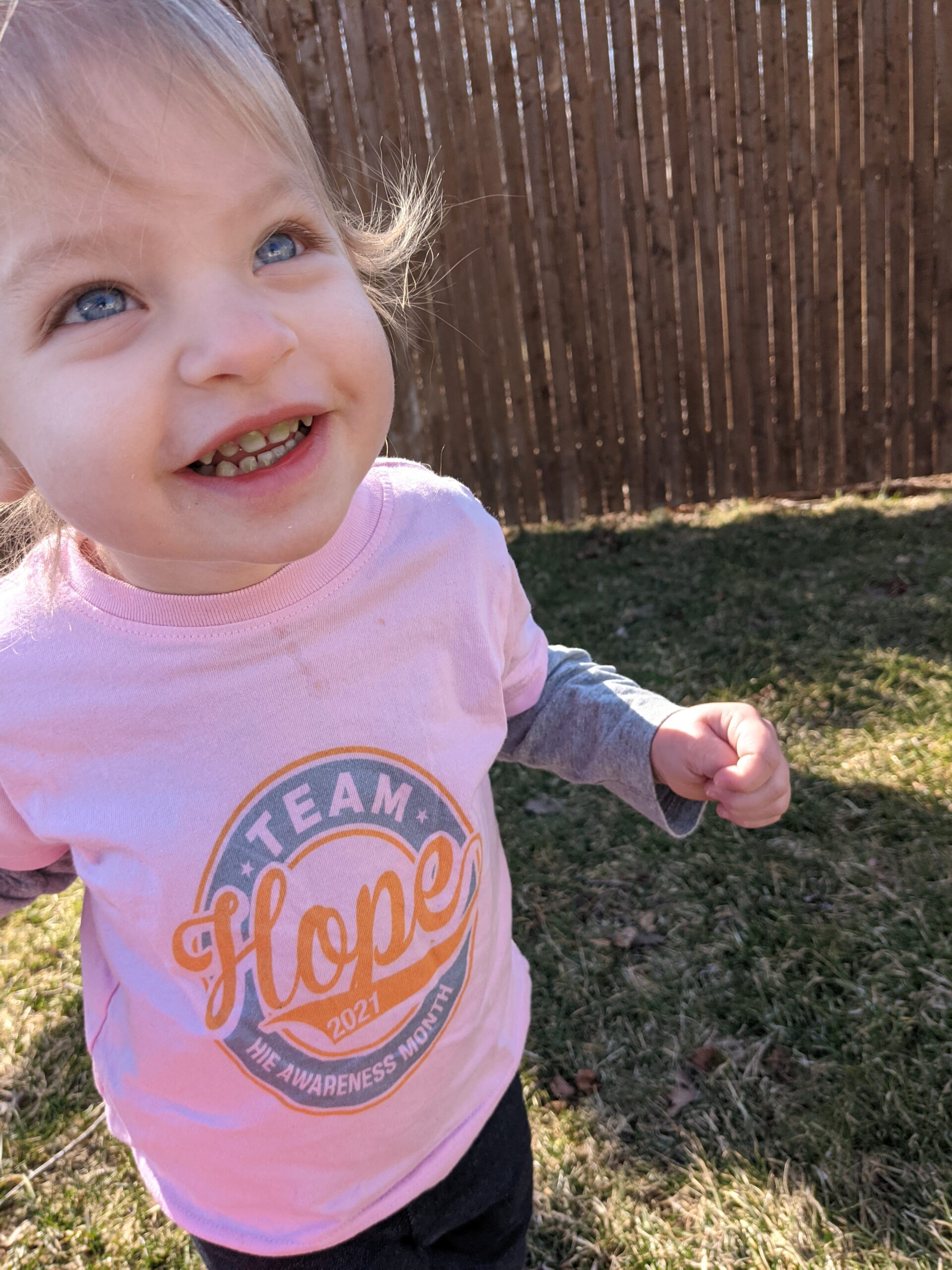
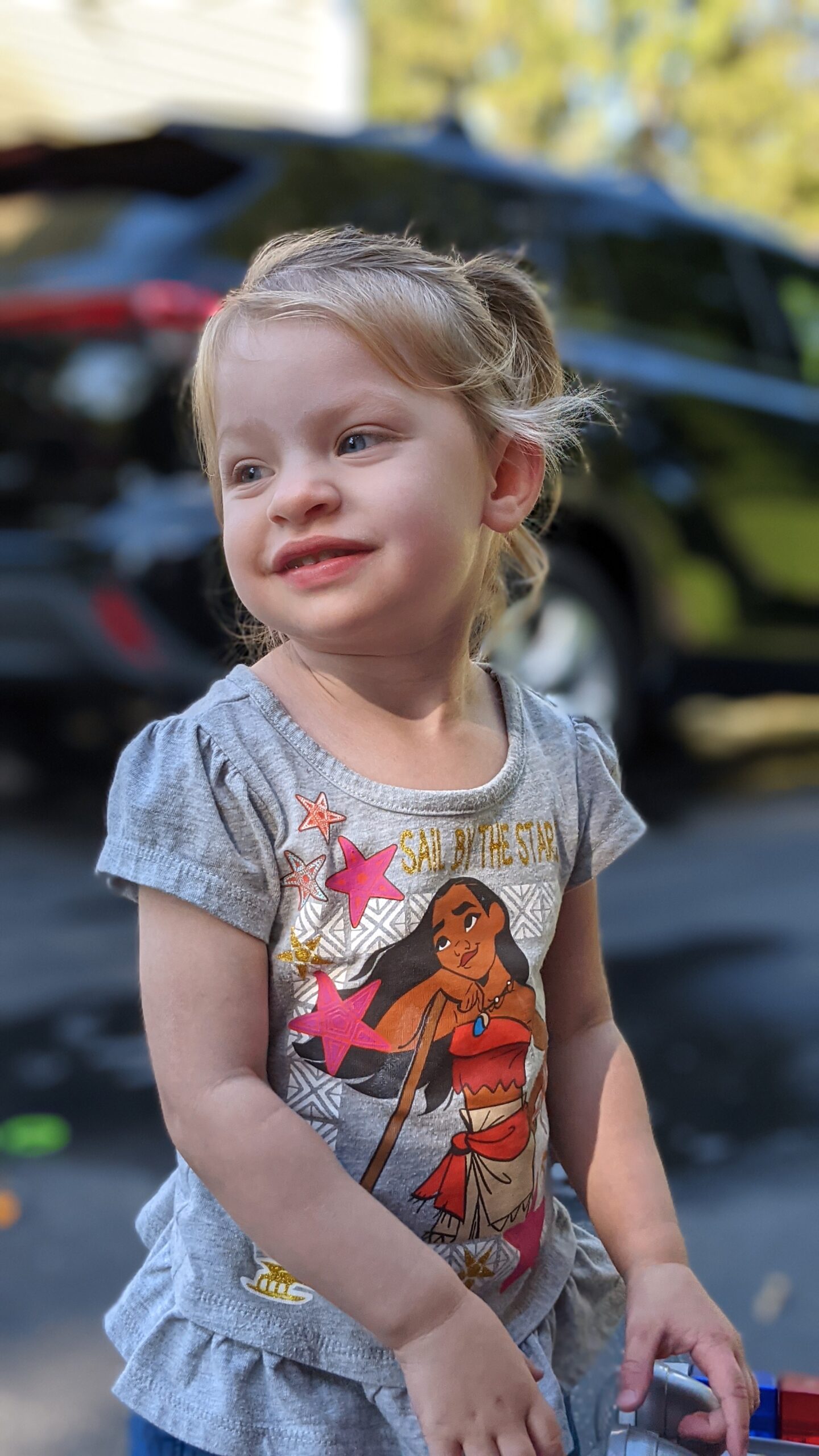
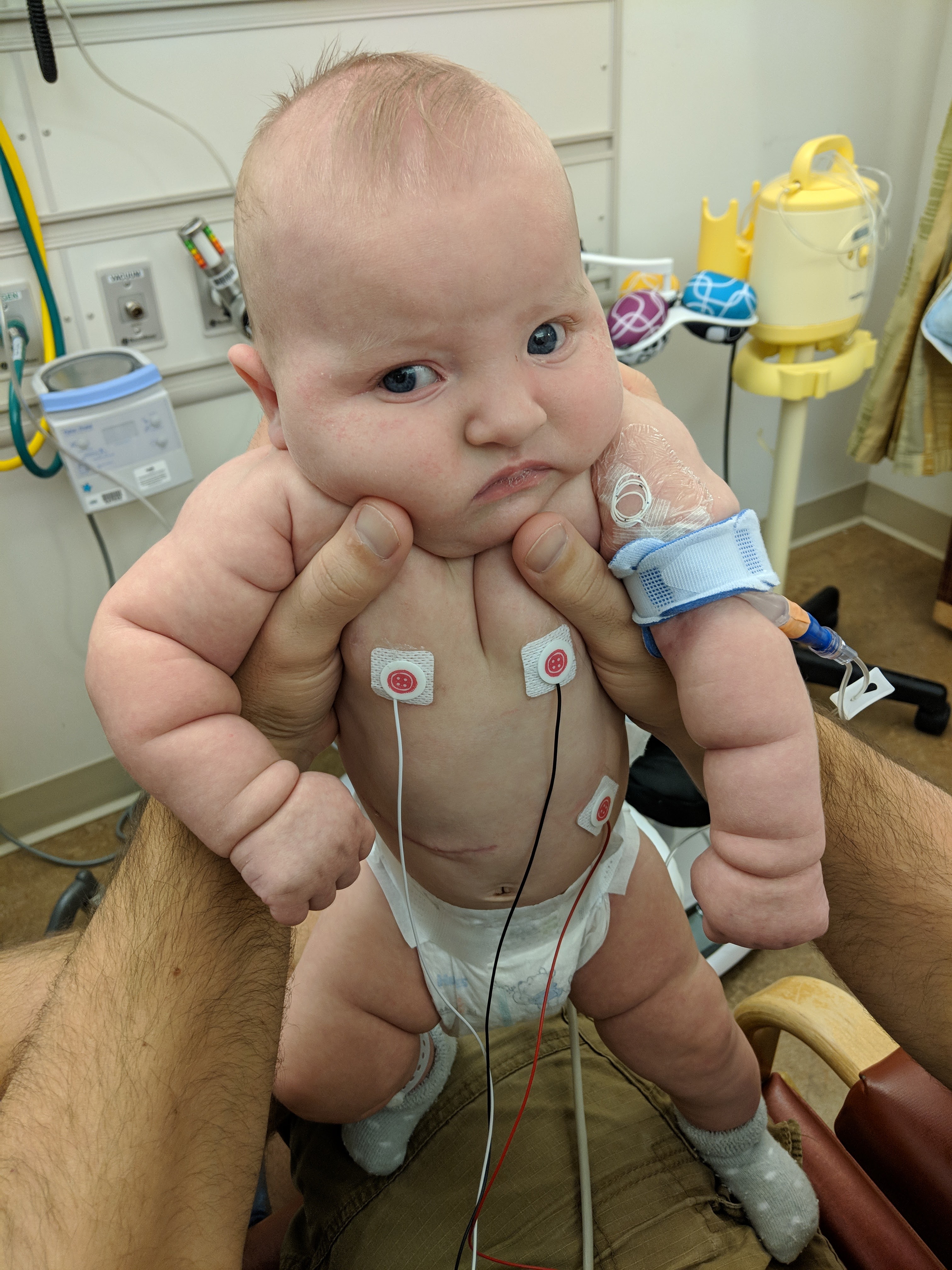
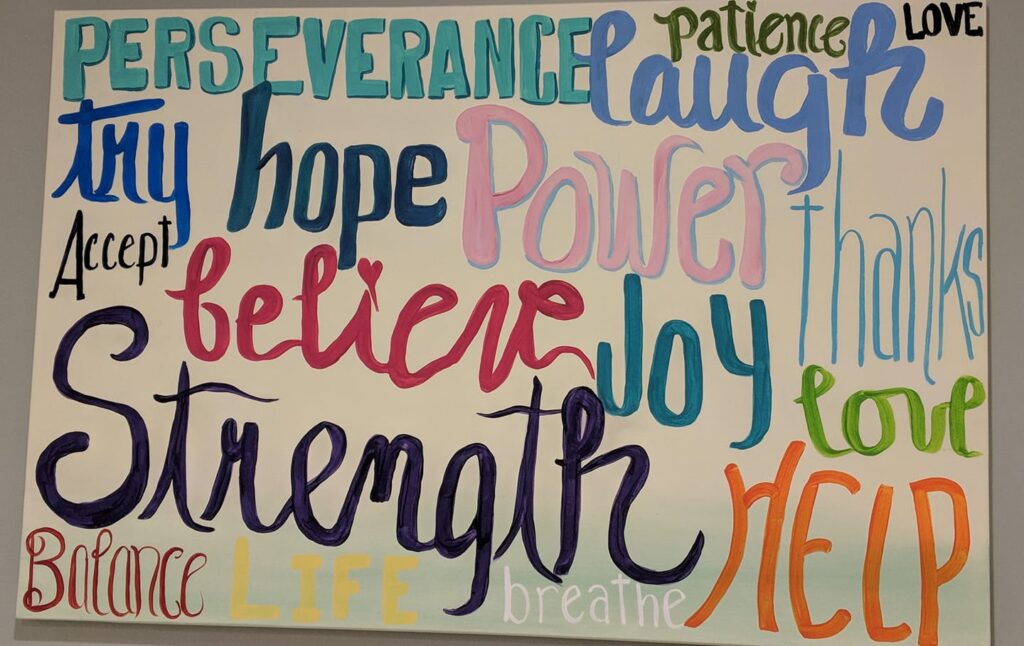
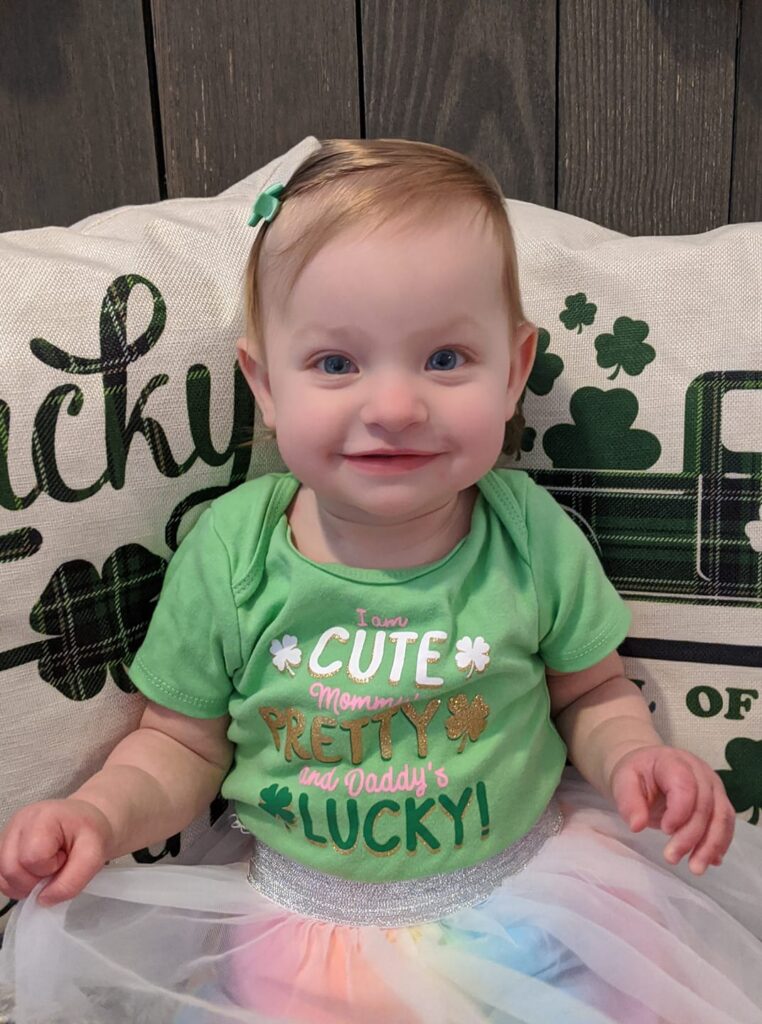
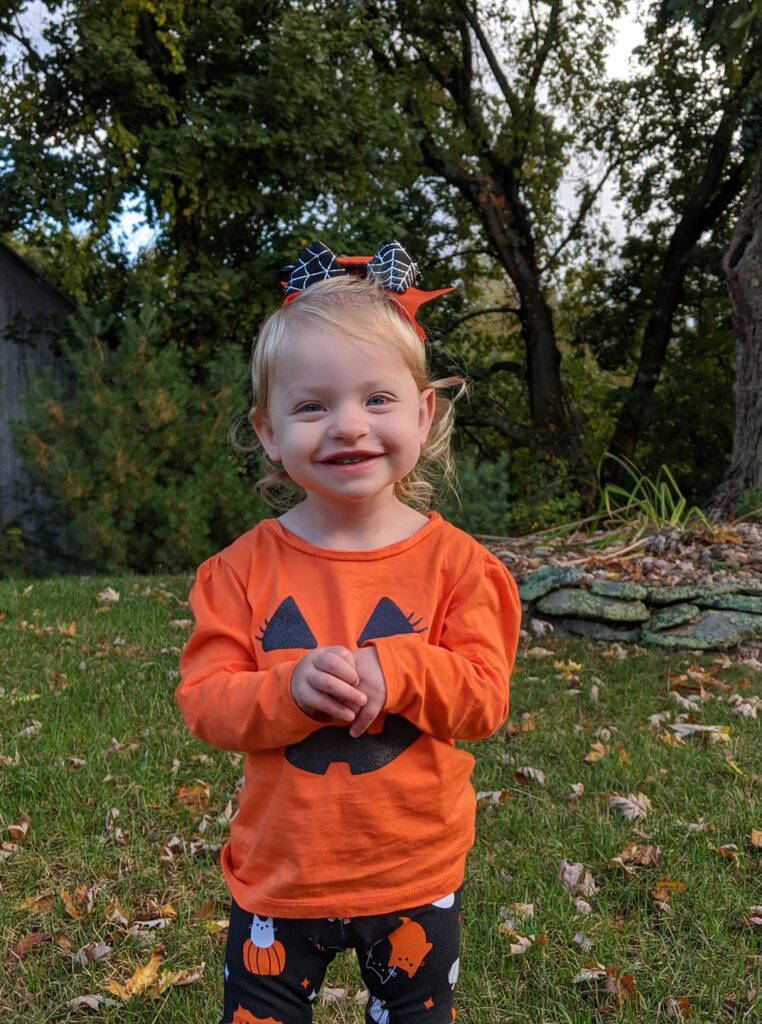
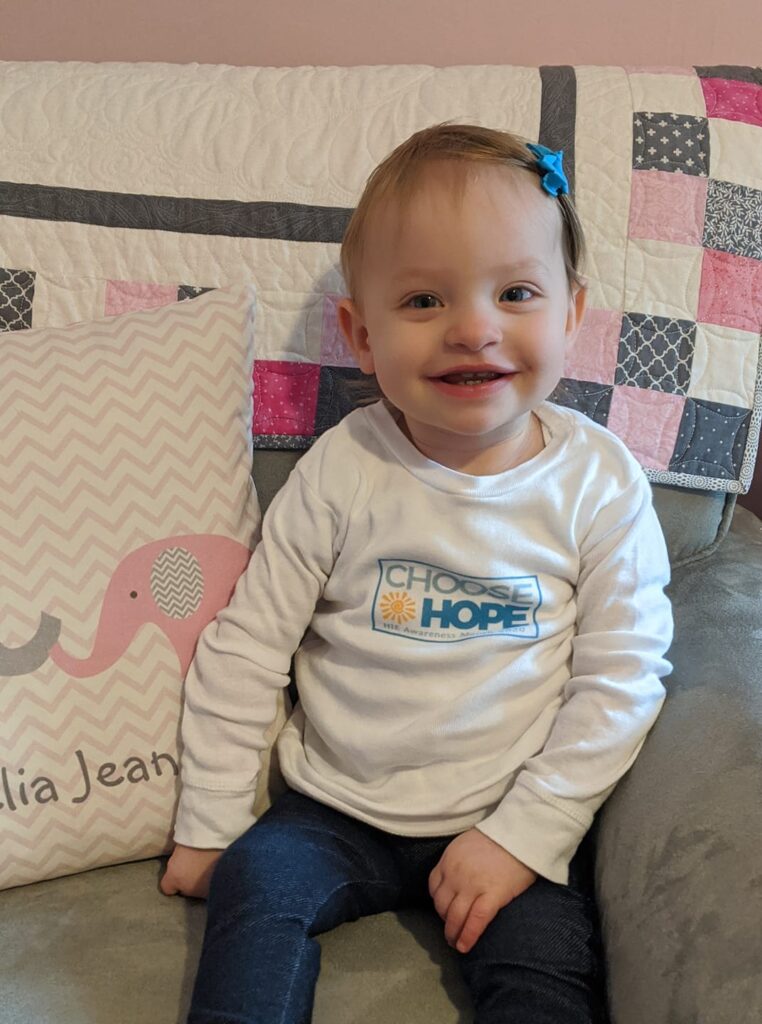
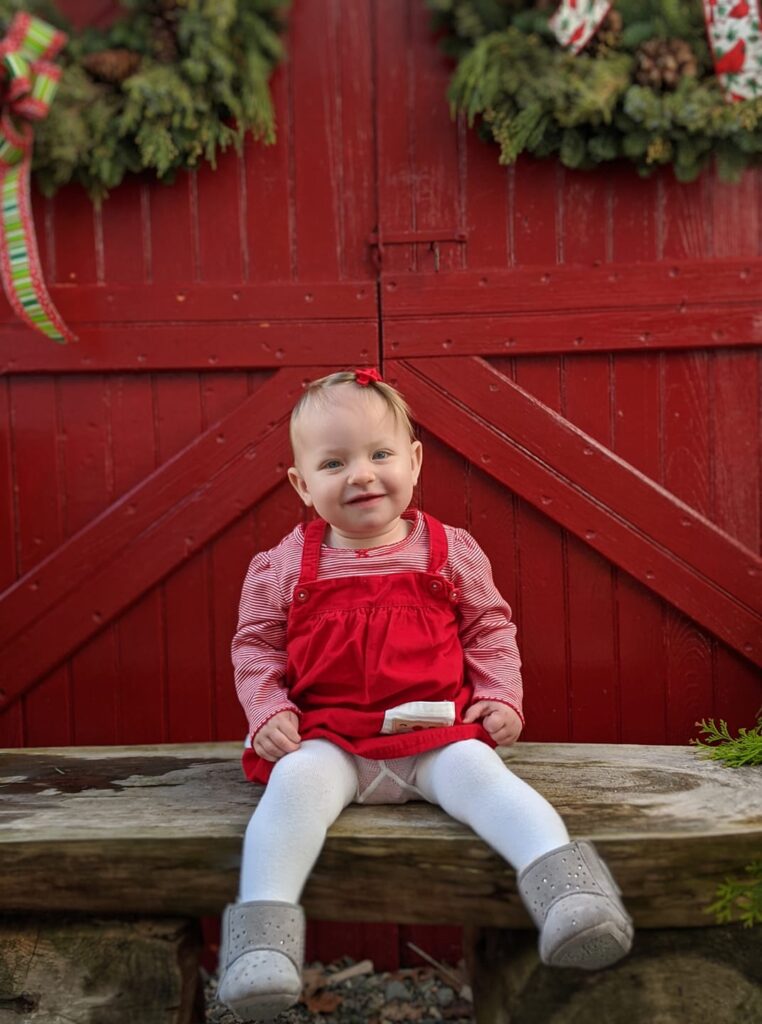
Connect with families, read inspiring stories, and get helpful resources delivered right to your inbox.